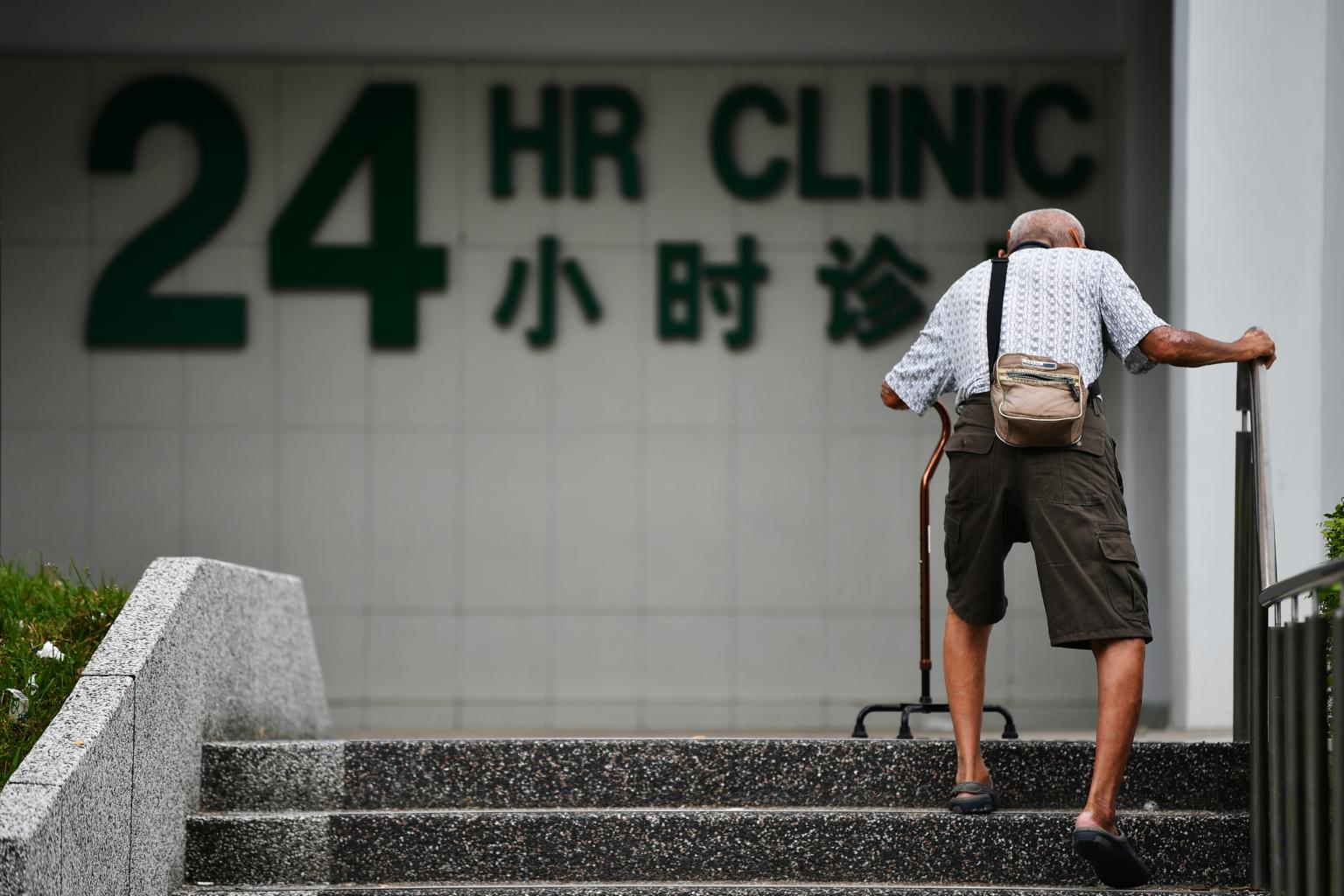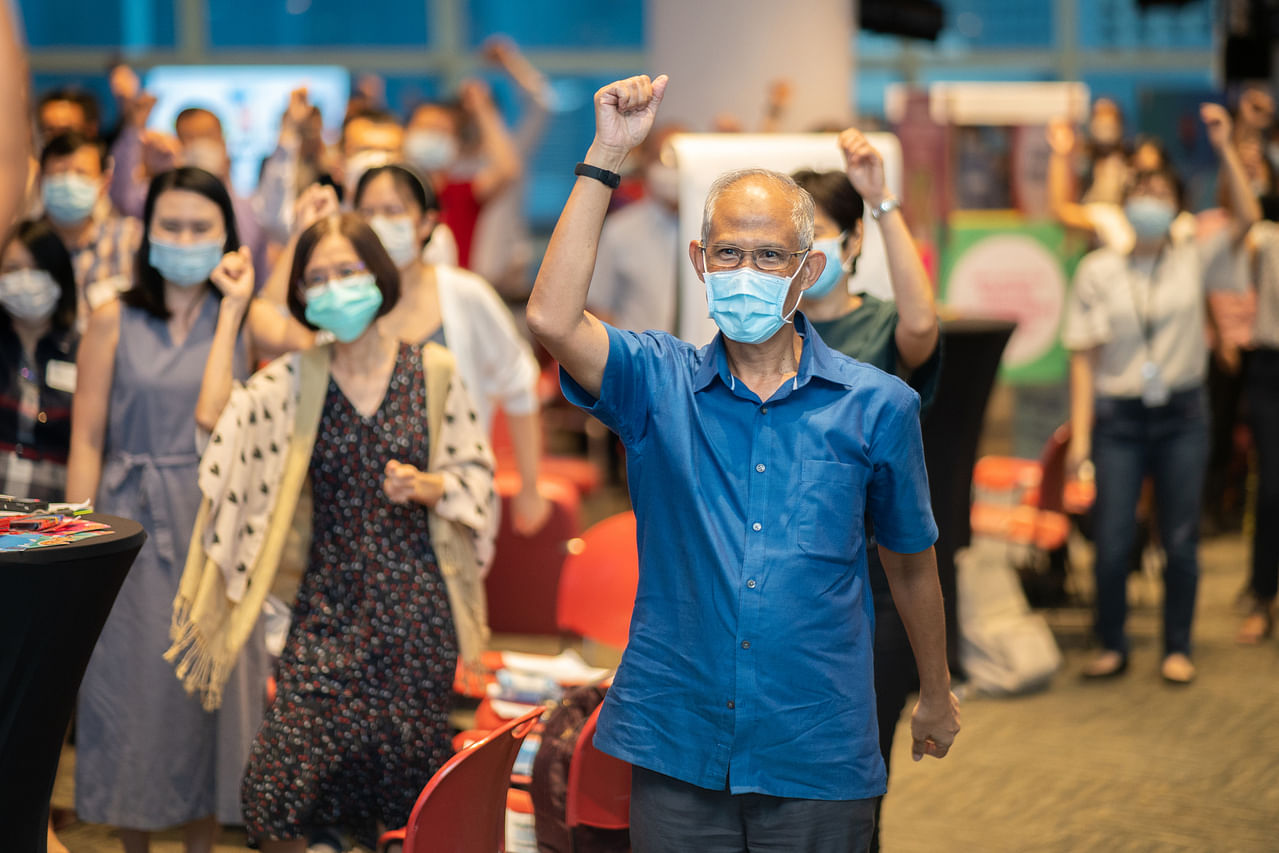Tailored healthcare, GPs trained in mental well-being raised in feedback sessions
Sign up now: Get ST's newsletters delivered to your inbox

Among the core elements of Healthier SG is a national enrolment programme, where every resident is assigned a family doctor.
ST PHOTO: LIM YAOHUI
SINGAPORE - Seniors want a healthcare plan that is tailored to their needs and convenient while younger people hope that general practitioners (GPs) can be trained to engage with them on mental health issues.
These were some of the observations from a series of public consultation sessions under the Health Ministry's Healthier SG strategy mentioned by Second Minister for Health Masagos Zulkifli.
He was speaking at the National Library on Wednesday (June 16) during one of the sessions.
In these feedback sessions, members of the public gave their views and suggestions on shaping the Healthier SG strategy, which aims to deliver more coordinated care.
This includes getting family doctors to play a key role in preventive care so that they can spot diseases earlier and keep Singaporeans out of hospital as much as possible.
"In terms of healthcare plan, seniors want to be able to participate in one that is tailored for their needs, which is not strenuous, and which is near where they live," said Mr Masagos.
"For the young, they are more worried about mental well-being... They need access, through their GP, who can be trained to engage them and take them out of their stress or state of depression."
He added: "Healthier SG wants to address both issues around physical access and mental wellness."
Among the core elements of Healthier SG is a national enrolment programme, where every resident is assigned a family doctor. It also entails building a lifelong relationship between each Singaporean and their family physician.
Their doctor will come up with a health plan for them, said Mr Masagos.
"If they are healthy, (the plan will cover) how to maintain their health and prevent chronic illness; and for those who have chronic illness already, how to manage it so that it doesn't become worse," he said.
Since May, there have been five such in-person public engagement sessions, with about 500 participants thus far.
A corresponding online feedback survey - which will continue till Aug 15 - has garnered over 1,800 responses.
The feedback gathered will be studied and incorporated into a White Paper, which will be tabled in Parliament for debate later this year.
Mr Masagos shared that the engagement sessions have raised a few concerns, such as how to make a choice on a primary care provider if an individual already has a company doctor, or if they visit a few doctors.
"These are practical questions and we will take that on board so that residents know how best to choose their doctor; and for doctors, how best to manage patients who may even have more than one doctor," he said.
"That means we may have to have a good IT system so that information can be porous, with enough protection for their security, so different doctors can manage different kinds of illnesses - but with one primary caregiver who knows their (patients') family and individual history."

Incentivising an individual to maintain his health is also something being looked into.
Health screenings may uncover underlying issues, after which doctors and the health services can tailor a programme to reward a patient for his progress accordingly.
"There will be (an incentive programme) which is nationally available, done by HPB (Health Promotion Board). But we are thinking about how to bring it down to the patient, so doctors can incentivise and reward improvements for maintaining some health status that the patient and doctor (have identified)," said Mr Masagos.
"But (screenings) must be regular and relevant to the person, for example, if they have a history of a particular form of cancer in the family," he added.
Among the participants at the public consultation session on Wednesday was Ms Moonlake Lee, 53, who helms Unlocking ADHD - a non-profit with a mission to empower those with attention deficit hyperactivity disorder in Singapore.
"I think it is important (to go to the same doctor) because a relationship is formed and there is trust... Your doctor will be able to follow your health and notice if anything is unusual," said Ms Lee, who has been seeing her current family doctor for four years.
But she also hopes to see more doctors trained in dealing with mental health.
"There are more people having anxiety and depression in Singapore... So having someone to be able to detect that earlier, because they are familiar with the family, would be good," she added.


